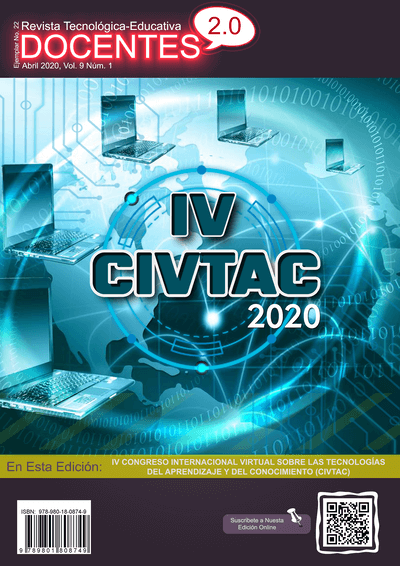Pilot plant for hydraulic pumps for teaching and learning fluid mechanics
 DOI:
https://doi.org/10.37843/rted.v9i1.116
DOI:
https://doi.org/10.37843/rted.v9i1.116
Main Article Content
Abstract
This work was developed with the purpose of manufacturing a portable hydraulic pumps test bench for didactic applications in order to study the flow of fluids and their characteristics, in which he was able to develop practical experiences in the engineering area, knowing how to handle it in the labor and industrial environment the behavior of this, Therefore this developed work was supported by theories of Pumps, Theory, Design and applications, Maxtais (2009), Science of materials, Smith (2001), Strength of Materials, Mott ( 2009), Introduction to Engineering, White (2011). On the other hand, the present investigation was found in the feasible type of project, therefore the data collection technique was used, such as the management of statistical techniques, direct observation, among others. Finally, practical procedures were carried out for the construction of the pilot plant, such as the parameterization of its design, the selection of both materials and equipment, as well as the design of this reflected in dimensioned plans with the use of AutoCAD 2015 ®, developing in this way the 5 stages or phases of the manufacture of this study tool which were validated by reason of the operating pressure, performance, head, and robustness of it.
Downloads
Metrics
Article Details

This work is licensed under a Creative Commons Attribution-NonCommercial-NoDerivatives 4.0 International License.
Those authors who have publications in our journal accept the following terms:
- When a work is accepted for publication, the author retains rights of reproduction, distribution of his/her article for exploitation in all countries of the world in the format provided by our magazine and any other magnetic medium, optical, and digital.
- Authors will retain their copyright and guarantee the journal the right first to publish their work, which will be simultaneously subject to the Creative Commons Acknowledgment License (Attribution-NonCommercial-NoDerivatives 4.0 International (CC BY-NC-ND 4.0)). That allows third parties to copy and redistribute the material in any medium or format, under the following conditions: Acknowledgment - You must properly acknowledge authorship, provide a link to the license, and indicate if any changes have been made. You may do so in any reasonable way, but not in a way that suggests you have the licensor's endorsement or receive it for your use. NonCommercial - You may not use the material for a commercial purpose. NoDerivatives - If you remix, transform, or build from the material, you cannot broadcast the modified material. There are no additional restrictions - You cannot apply legal terms or technological measures that legally restrict you from doing what the license allows.
- Authors may adopt other non-exclusive license agreements to distribute the published version of the work (e.g., deposit it in an institutional archive or publish it in a monographic volume) provided that the initial publication in this journal is indicated.
- Authors are allowed and recommended to disseminate their work through the Internet (e.g., in institutional telematic archives, repositories, libraries, or their website), producing exciting exchanges and increasing the published work's citations.
- Request of withdrawal an article has to be done in writing by the author to the Editor, becoming effective after a written response from the Editor. For this purpose, the author or authors will send correspondence via e-mail: [email protected].
- The author will not receive financial compensation for the publication of his work.
- All Docentes 2.0 Journal publications are under the Open Journal System (OJS) platform at: https://ojs.docentes20.com/.
References
Arias, F. (2006) Mitos y errores en la elaboración de tesis y proyectos de investigación. Episteme.
Bautista, M. (2009). Metodología de la Investigación cuantitativa. Editorial Limusa, 2da edición.
Hernández, R., Fernández, C. y Batista, P. (2006). Metodología de la Investigación. Editorial Mw Graw Hill, 5ta Edición.
Hurtado, J. (2006) Metodología de la Investigación Holística. Fundación Sypal.
Mataix, C. (2009). Mecánica de fluidos y maquinas hidráulicas. 2da Edición en español. Editorial. Universidad Pontificia Comillas.
Mott, R. (2009). Resistencia de Materiales.5ta edición Editorial Pearson.
Universidad Experimental Libertador (2005). Manual para la Elaboración de trabajos de grado. Editorial UPEL.
Smith, W. (2001). Ciencia e ingeniería de materiales. Editorial Mw Graw Hill, 3era Edición.
White, F. (2011). Mecánica de Fluidos. Editorial Mw Graw Hill, 5ta Edición en español.






